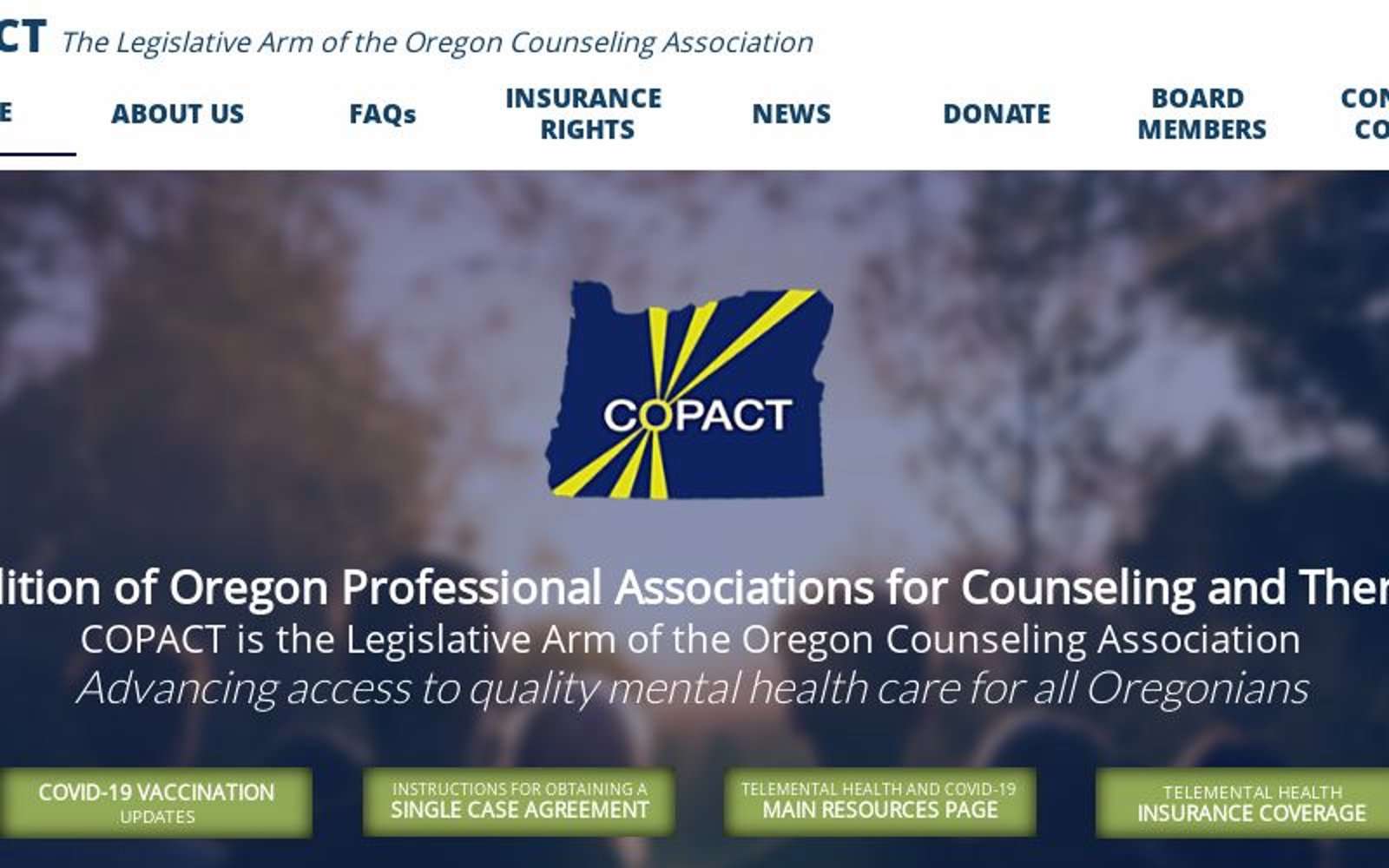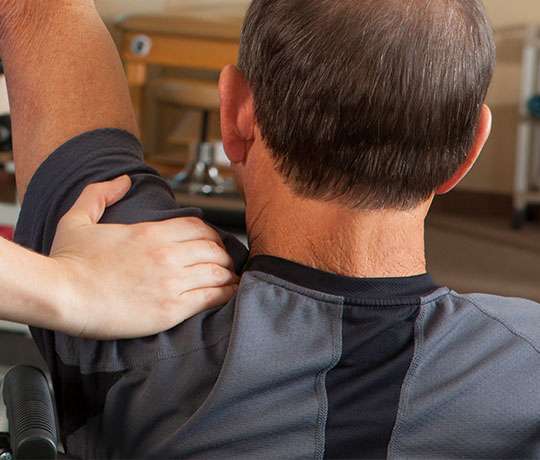We have created this webpage as a resource for psychologists, residents, and applicants in response to the coronavirus. We will continue to add information and resources as we learn of new developments and in response to stakeholder concerns. Please remember that agency staff is unable to respond to requests for legal or clinical advice. The Board cannot advise or make comment on the Governor’s orders, insurance reimbursement, federal regulations such as HIPAA, or the happenings of outside organizations such as APA. You will need to contact those associated entities with questions related to their programs.
Important! Notwithstanding updated masking guidance, whether vaccinated or not, all licensed psychologists, psychologist associates and other behavioral health providers are reminded that as designated healthcare providers, we fall under the most recent OHA Guidelines for healthcare settings and both clinicians and clients are currently required to wear face coverings. OHA and OSHA are reviewing the mask mandate and will notify OBOP if that status changes; until then, the mask mandate remains in effect.
COVID-19 Workgroup
Decisions made by a psychologist about their pandemic practices should reflect a careful and thoughtful process. At a minimum, the psychologist should consider the welfare and safety of the client and family members, specifics of relevant public health orders and workplace safety advisories (e.g., personal distancing options and ventilation), and legal and ethical standards for psychologists. Included at the end of this list of FAQs are guidance documents from professional organizations such as the American Psychological Association, The Trust, the Association of State and Provincial Psychology Boards, and the Centers for Disease Control that may also help to highlight the many health and safety factors under consideration. Sample forms are also included as an example of one approach to pandemic psychological policies.
Telehealth may be the safest practice option during periods of pandemic viral danger. However, a psychologist may encounter clients in need of ongoing clinical attention but who cannot safely or practically utilize video or a telephone format (e.g., an older adult with hearing loss, young children, or a quasi-homeless client without phone or internet access). In addition, clinical assessment, (e.g., neuropsychology) may require in-person administration and or observation in order to maintain reliability and validity of the assessment procedures. Given the needs of these clients, some psychologists are seeing clients in person. The Board expects that psychologists who decide to see clients in person do so only after a careful and balanced evaluation of both the safety risks (for clients, supporting staff, and the psychologist) and the legal requirements of State Executive Orders. Psychologists who determine that benefits outweigh the risks of seeing clients in person should document both their rationale for providing in person services and their safety practices.
As a general principle, the Board will weigh individual complaints regarding practice management during COVID-19 against guidance which is frequently updated by the Oregon Health Authority (OHA), in addition to the APA Ethical Code and relevant state statutes. Since each instance will present unique characteristics, it is not possible to provide specific predictions of the sanctions that may be involved in addressing a complaint. However, psychologists should be aware that the Board is required to enforce the Governor’s Executive Order ( OAR 858-020-0115 ), and OHA rules related to COVID-19 ( OAR 858-020-0116 ). The rules set forth that failure to comply with any applicable provision of a Governor’s Executive Order, including failure to comply with Oregon Health Authority guidance, or failure to comply with OHA COVID-19 related rule, constitutes unprofessional conduct. Violations are subject to Board sanction in accordance with ORS 675 .070.
Many of the FAQs below were assembled by the OBOP COVID-19 Workgroup. The Oregon Board of Psychology would like to thank the members who have graciously volunteered their time and expertise to this project. Our team consists of a non-psychologist public Board member (Janice Schermer), two member psychologists (Deborah Wise, Ph.D., and Michael Fulop, Psy.D.), and three OBOP Board members (Elisabeth Goy, Ph.D., Patricia Bjorkquist, Ph.D., and Linda Nishi-Strattner, Ph.D., Workgroup Chair). We would like to add that this FAQ list, like most factors of COVID-19, is constantly evolving, so please stay tuned for updates and course corrections.
COVID-19 Survey: Ask your Questions of the COVID-19 Workgroup Here
The Board recognizes that there are some unknowns and many questions about the best way for practitioners to protect the public in the practice of psychology during the COVID-19 emergency, particularly as we respond to changing federal and state mandates. The Board is making guidance available for best practices, and we will provide updates on this webpage as needed.
The Board invites members of the public and licensees to please use the following ongoing survey link to submit your questions and concerns about creating safe clinical practices during COVID. Your input will help us regularly update these “Frequently Asked Questions” reference tool.
Please be aware, as new knowledge is acquired about virus transmission and tested safety protocols, we may need to update or in some circumstances reverse information to reflect new evidence. The Board cannot provide medical or insurance advice, and does not provide interpretation of the Governor’s Executive Orders or Oregon Health Authority’s guidelines.
FAQs
The following FAQs are broken down by subject area. Last updated: September 1, 2022.
Telehealth
1. Are there any guidance materials on tele-therapy?
Please see below, under “Resources.” There is no additional certification required for Oregon psychologists to practice teletherapy in Oregon.
2. Is there any exception that allows me to practice in other states or countries?
We cannot answer this question for other jurisdictions, but understand that many are reviewing their laws and making changes to allow such practice, so please check with the individual jurisdiction.
3. Is there any exception that allows licensees from other states to practice in Oregon?
The Board offers a Limited Permit (Visitor’s) to out-of-state psychologists who are licensed in good standing in other jurisdictions. This allows the psychologist to practice through confidential electronic communication in Oregon for a limited purpose.
4. Will insurance coverage for telehealth continue?
On June 1, 2021, House Bill 2508 was signed into law. This stipulates that in Oregon, telemedicine shall be reimbursed at the same rate as in-person services. Psychologists are advised to contact insurance companies directly to determine the appropriate billing codes.
5. Isn’t it unethical and unsafe for you to not continue to see your out-of-state clients via telehealth?
Check with the Board of the state where your client is located at the time of your provision of services. Prepare your client for the possibility that licensure requirements might require them to see a psychologist who is licensed in their state.
REVISED 9/1/22!
6. What if my client cannot wear a mask due to a medical condition?
Psychologists must develop and follow a policy that if a patient cannot tolerate any form of face covering due to a medical condition, strict physical distancing of at least six feet be observed from other non-health care personnel to the greatest extent possible. When determining whether or not to see clients in person, consider your client’s safety and carefully document your rationale for choosing to see clients in person as well as what actions you took to ensure their safety.
7. What changes in documentation should psychologists consider when providing telehealth services during the pandemic?
When providing telehealth services, psychologists should consider documenting in their clinical files that the session was conducted over telehealth, if an alternate platform was used and why (e.g., power outage necessitated a telephone call instead of video), where the patient was at the time of the session, and how confidentiality was protected (e.g., did you ask if there were others in the house/room).
Seeing Patients In-Person
8. What ethical issues should I consider when weighing whether or not to meet with clients in person?
Psychologists should consider the ethical principle of beneficence and nonmaleficence in which they strive to benefit those with whom they work and take care to do no harm. In this instance, psychologists should consider whose interest is met by shifting to in person meetings and guard against having their own needs supersede their client’s needs as they consider making this transition. According to guidance published by the American Psychological Association , “keep in mind that psychologists can refuse to see patients face-to-face, especially if they are older or have health conditions, or live with family members who have heightened risk factors. Do not unnecessarily jeopardize your health, or the health of your family, your staff or your patients.”
In Summary: Carefully document your thought processes and your actions.*
Resources section below:
*One recent reasonable decision-making framework addressing whether to see patients in-person vs telehealth, masked vs not masked, administering psychological measures or doing therapy can be found at this link: https://pubmed.ncbi.nlm.nih.gov/32997103/ and an earlier version in thesection below: Sample COVID Policy & Procedure Documents pages 11-13.
9. What issues other than the Governor’s current emergency orders, should a psychologist consider when deciding whether to see clients in person?
These factors should be considered when making your decision [not in any particular order]. This is not intended as an exhaustive list.
1.Compliance with the Governor’s orders regarding COVID-19,
2.Notifying clients about your COVID-19 mitigation and risk reduction requirements,
3.Notifying co-workers, office partners, and landlords of resumption of in-office work,
4.Ensuring sufficient procedures and supplies for PPE and office sanitation [see links below],
5.Evaluating risk factors for yourself, and for all of those with whom you share office space, and their respective family members,
6.Having a policy in place if your clients are unable or unwilling to wear a mask, or get the vaccine,
7.Sufficient air filtration systems [HEPA filters in a building’s HVAC system, or HEPA filters in rooms where patients will be seen],
8.An informed consent form regarding COVID-19,
9.A waiver of liability form regarding COVID-19,
10.Vaccine availability for yourself and patients, and staff.
41. Should I send my request for vaccination exemption to the Board?
No. The Board is not authorized to grant variances to public health rules established by the Oregon Health Authority, and therefore has no process to accept exemption requests. Please refer to OHA’s Exemptions Instructions
42. Who should I contact if I have questions or don’t agree with OHA guidelines or rules?
Licensees and residents (along with all other designated health care providers) are required to comply with OHA rules and guidance regarding COVID-19, prior to and while providing services. Our inclusion as health care providers allowed psychologists to receive COVID-19 vaccines ahead of other groups when vaccines were first available, and it requires us to continue to comply with OHA rules and guidance regarding COVID-19 mitigation until the state of emergency is lifted. Psychologists may contact OHA with their questions, objections or concerns regarding OHA guidelines at https://www.oregon.gov/oha . You may also submit public comments to OHA regarding COVID-19 related proposed rules
43. How can I help during the pandemic or other emergencies?
Psychologists and other healthcare providers may register for the SERV-OR roster of volunteers in response to local, state, and/or federal emergencies, to support fellow health professionals and communities in times of crisis. The American Red Cross also needs disaster mental health volunteers.
Resources
State and federal response to COVID-19:



